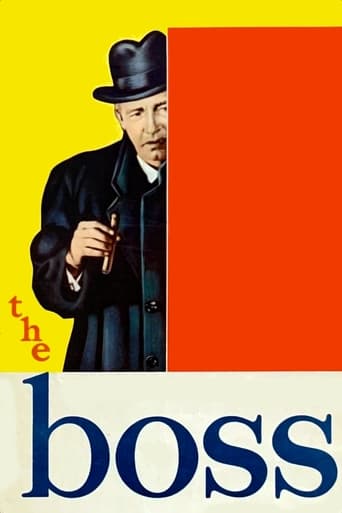Magma_Flow
My assessment of this film leaves aside the film's historical connections and the screenwriter's biography.The script, direction, and acting (with two exceptions, noted below) are one-dimensional and heavy-handed. John Payne performs in a single mode -- snarling -- until the end, when he woodenly tries to appear chastened, with equally unconvincing results.The feebleness of the filmmaking is illustrated by the relationship between the brothers Matt and Tim Brady. Their rivalry is supposed to be the key to Matt's motivation. But all that comes across in their encounters is the same unexplained belligerence that marks the rest of Payne's performance.His refusal to end his marriage to a woman he despises shows the same failure: the filmmakers are reaching for a complexity that lies beyond their powers (or budget), and the result seems arbitrary and schematic.Two redeeming features of the film are the portrayals of secondary characters by Gloria McGehee and Robin Morse. McGehee, as the unwanted wife, reads her lines with a natural directness that breaks through the genre conventions surrounding her. Morse, as a gang leader, convincingly presents a contradiction: an intelligent thug. This rare bit of psychological richness culminates in his distinctive walk, a lurching gait that seems to say, Because I can kill you, I have no pretenses. The director wakes from his slumber and holds the camera on this walk in two shots.
JohnHowardReid
Hal Mohr's effectively low-key photography throughout this movie, plus two grippingly staged action sequences, are offset by a lot of small-budget dialogue and a hokey plot. Edward G. Robinson might have made the main character an interesting figure, but John Payne lacks the necessary charisma for such a role. The other players are not suitably cast either. And though some effort has been made to obtain a period atmosphere with a careful use of locations and the right stock footage, the final impression is negative, thanks chiefly to too much dialogue, too little imagination in Byron Haskin's direction with its over-reliance on close-ups, and two hammy performances (Payne and Gloria McGhee – a TV actress who made only three movies of which this is the first).
danielj_old999
In trying to jumpstart itself, this movie is somewhat heavy handed at the beginning, taking one notably big and questionable dramatic risk, but gains power slowly and turns into something of a monumental mini-epic with John Payne's changes of hair coloring registering his slow and merciless journey toward a godless end...what a performance, but it's not as good as Gloria McGehee's as the unwanted wife Lorry - which is about as good as you'll ever see from an actress on screen, period. Also great is Robin Morse as Johnny the Organization Man, a wonderful low key performance...where has this movie been all our lives? It's powerful, at times difficult to watch, brutal, and worth the ride.
curt_marshall
I originally saw the film when it came out and only saw it again recently. Scenes from the film have stayed with me and I wasn't disappointed when it ran on TV. John Payne, The Boss, was a good Hollywood portrayal of a crime boss. The bad guys are really bad and the good guys are few. Crooked politics, payoffs, rub-outs, double-crosses, brawls, you name it and it's used. Payne was a popular actor in the 40's but I didn't appreciate him at the time. Based on this film I will try to see some of his others. If you liked Asphalt Jungle you probably would also like The Boss.
